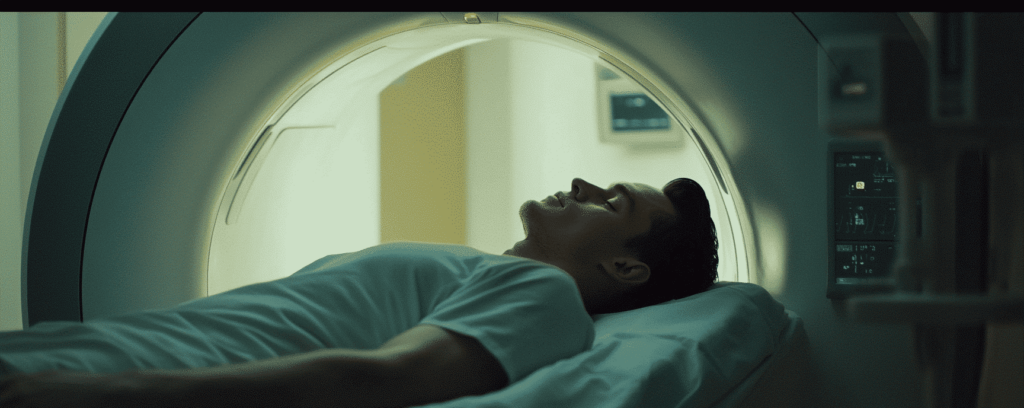Strategies for TBI Survivor Success and Recovery
Last updated Tuesday, December 31st, 2024

A traumatic brain injury (TBI) can turn life upside down. Many TBI survivors ask, ‘What can I do to improve my recovery?’ This article covers effective strategies for TBI survivors to enhance the brain’s ability to recover and achieve success as a TBI survivor.
Key Takeaways
- Traumatic brain injury (TBI) can have varied effects on cognitive and physical abilities, requiring tailored rehabilitation strategies for each survivor.
- Effective communication and emotional support are crucial for TBI survivors and their families, as they navigate changes in roles and relationships.
- Support networks and community resources play a vital role in enhancing recovery and fostering resilience among TBI survivors.
Understanding Traumatic Brain Injury (TBI)
A traumatic brain injury (TBI) is a devastating experience, characterized by damage to the brain caused by an external force such as a blow or jolt. Common causes include car accidents, sports injuries, and falls, making it an unfortunate reality that can strike anyone, anywhere. Severe cases often require immediate attention in the emergency room. Preventative measures like wearing helmets and seatbelts are crucial to reduce brain injuries.
TBIs can result in a range of impairments, from temporary to permanent, affecting a person’s ability to think, communicate, and perform daily activities. The severity of TBIs can vary widely, with some injuries being classified as mild or resulting in milder injuries while others are severe, requiring extensive medical care and rehabilitation. Age and gender also play a role, with older adults and men being at greater risk for severe TBIs. Consulting a primary care doctor or a local hospital is crucial for specialized brain injury treatment.
Symptoms of TBI can appear immediately and include confusion, headaches, and emotional disturbances. Emerging research aims to improve our understanding of these injuries and enhance diagnostic criteria, offering hope for better recovery outcomes. Understanding these aspects is essential as we explore how survivors navigate life after a TBI.
Assessing Injury Severity and Recovery

In addition to the GCS, other factors such as the length of unconsciousness, the duration of post-traumatic amnesia, and the presence of other injuries are also considered when assessing injury severity.
These factors help medical professionals develop a comprehensive understanding of the injury and tailor the rehabilitation process accordingly.
Recovery from brain injuries is a highly individualized journey. While some individuals may experience a full recovery, others may face ongoing challenges and require continuous support.
Factors influencing recovery include the severity of the injury, the effectiveness of the treatment received, and the individual’s overall health and well-being. Understanding these variables can help set realistic expectations and foster a proactive approach to rehabilitation.
Navigating Life After TBI
Life after a traumatic brain injury requires immense adjustment. TBI survivors often face challenges in relearning basic skills, such as walking or speaking, which can be daunting. The effects of moderate to severe TBI are profound, impacting a person’s ability to think, feel, behave, move, and sense.
Despite these challenges, many TBI survivors surpass dire medical predictions and lead fulfilling lives. This journey involves significant changes in family roles and relationships as well as coping with emotional and behavioral changes, which we will explore in the following subsections.
Role Changes in Family and Relationships
Family dynamics often shift dramatically after a TBI. Partners and family members may need to adopt new roles and responsibilities to support the survivor. Traditional roles might be reassigned due to the survivor’s altered capabilities, creating a new family dynamic.
These changes can be stressful and emotional, but focusing on progress and scheduling fun activities can help establish a positive environment at home. Couples can find new, meaningful ways to enjoy their relationship, despite the uncertainties and challenges that a TBI brings.
Coping with Emotional and Behavioral Changes
Emotional changes are a common aftermath of a TBI. Survivors might experience decreased motivation and feelings of letting others down. Frustration and anxiety are prevalent, affecting both the survivor and their loved ones. More stress can worsen these emotional disturbances and anxiety, making it crucial to manage stress levels effectively.
Effective coping strategies include focusing on accomplishments, prioritizing self-care, and challenging negative thoughts. Reevaluating self-worth based on contributions to others and maintaining a positive outlook can significantly help in managing these emotional challenges.
Effective Communication Skills Post-TBI
Communication skills are vital for TBI survivors. Post-injury, social interactions, and relationships often require significant adjustments. Survivors might need to slow down their speech, take mental steps back during conversations, and ask for permission to summarize what has been said.
To manage discussions about their injury, survivors can look for cues, summarize what they’ve heard, and maintain friendly expressions. Enhancing both verbal and non-verbal communication and managing cognitive load during conversations are crucial, as detailed in the following subsections.
Enhancing Verbal and Non-Verbal Communication
Non-verbal communication, including body language and facial expressions, plays a significant role in social interactions post-TBI. Setting specific goals for social skills improvement can help survivors track progress and stay motivated.
Using visual aids to support verbal communication and practicing active listening are effective strategies. These methods help survivors better engage in conversations and demonstrate attentiveness to their communication partners.
Managing Fatigue and Cognitive Load During Conversations
TBI survivors often experience fatigue during conversations. Pacing themselves, taking breaks, and starting with brief activities can help manage this fatigue. Stress can negatively affect memory loss and attention, altering brain functioning during conversations.
Strategies to improve memory and attention include following routines, summarizing information with keywords, and practicing relaxation techniques. These approaches enhance readiness to learn and remember while reducing stress.
Rehabilitation and Recovery Strategies
Rehabilitation is crucial for TBI survivors. It involves various pathways, including inpatient and outpatient services, tailored to individual needs. Combining different rehabilitation techniques enhances recovery effectiveness.
Therapeutic exercises based on positive psychology methods can be effectively integrated into rehabilitation programs. The following subsections detail medical, physical, cognitive, and emotional rehabilitation programs.
Medical and Physical Rehabilitation Programs
Medical and physical rehabilitation programs are essential for TBI survivors. These programs include relearning basic skills and TBI-specific exercise and nutrition programs. Comprehensive interdisciplinary inpatient rehabilitation is crucial for individuals with moderate to severe TBI.
Extended hospital stays ranging from several weeks to months are often necessary for intensive rehabilitation. Local rehabilitation centers commonly host support groups specifically designed for TBI survivors.
Cognitive and Emotional Therapy Options
Cognitive and emotional therapies are vital for TBI recovery. Working with therapists to develop balanced statements to challenge unhelpful thoughts is beneficial. Community-based care is also crucial for advancing recovery.
Community resources provide vital assistance and information for both survivors and their families. These resources can significantly aid in managing the cognitive and emotional challenges post-TBI.
Creating a Supportive Recovery Environment

Family members and caregivers play a crucial role in this process. Providing emotional support, assisting with daily tasks, and helping to manage stress are vital components of a supportive environment. Encouraging independence while offering necessary assistance can boost the survivor’s confidence and promote a sense of normalcy.
Support groups are another invaluable resource. These groups offer a safe and supportive space where individuals with brain injuries and their family members can share their experiences, receive guidance, and connect with others facing similar challenges. Engaging with a support group can provide emotional relief and practical advice, enhancing the overall recovery experience.
Overcoming Challenges and Setbacks
Overcoming challenges and setbacks is an integral part of the recovery process for individuals with brain injuries. Developing effective coping strategies is essential for managing stress and anxiety. Techniques such as deep breathing exercises, mindfulness, and relaxation practices can help individuals stay calm and focused.
Support from family members, caregivers, and mental health professionals is also crucial. Open communication and a strong support network can provide the encouragement and assistance needed to navigate difficult times. It’s important to remember that setbacks, such as memory loss or cognitive difficulties, are common and can be addressed with patience and persistence.
Individuals can learn to adapt to these challenges by developing strategies to overcome them. For example, using memory aids like notebooks, calendars, and smartphone apps can help manage memory loss. Cognitive rehabilitation therapy can also provide targeted exercises to improve cognitive functions and enhance daily living skills.
Inspirational TBI Survivor Stories
Inspirational stories of TBI survivors showcase remarkable progress and recovery beyond expectations. Support groups can foster hope and motivation, enhancing the overall recovery experience. Engagement with a supportive community significantly enhances the recovery experience for TBI survivors.
The following subsections detail specific success stories of overcoming severe injuries and achieving independence.
Overcoming Severe Injuries
Severe TBIs often carry a bleak prognosis, but many brain injury survivors defy initial estimates. William, with a GCS rating of 7, had a survival chance of only 20%, yet he regained nearly all cognitive and motor functions by the end of the year.
Simon’s recovery journey is equally inspiring; initially waking up with an IQ of 50, he now boasts an IQ of 151. Dylan’s resilience helped him counter a 30-78% chance of a persistent vegetative state, walking independently just three months later.
Despite prolonged vegetative states, individuals can show remarkable recovery, highlighting the unexpected potential for improvement post-injury. Approximately 50% of severe TBI survivors function independently at home one year after injury.
Achieving Independence and Success
Many TBI survivors have regained their independence, proving that recovery is possible with determination and support. Their journeys emphasize that, with the right mindset and resources, impressive recoveries can be made.
Survivors often tell tales of overcoming obstacles to achieve personal and professional success, demonstrating resilience and the ability to function independently.
Building a Support Network
The right rehabilitation and support can make a significant difference in the recovery process for TBI survivors. Keeping family and loved ones involved enhances support and strengthens the recovery journey.
Survivors should remember they are not alone and can find support from others who are also recovering. Effective social skills and active listening are crucial for enhancing interactions and building relationships.
Finding Local Support Groups
Finding local support groups can significantly enhance the recovery process for individuals with TBI. Contacting your state brain injury association or using online platforms can help locate these groups.
Engaging with a support group provides a sense of community and shared experiences, which is invaluable for recovery and emotional well-being.
Leveraging Community Resources
Community resources, such as state brain injury associations, are essential for locating support groups and aiding in recovery. Many local brain injury associations provide resources to connect survivors with nearby support groups. Utilizing these resources can significantly benefit TBI survivors in their recovery and daily living.
Community involvement fosters a sense of belonging and support.
Building a Fulfilling Life After Brain Injury
Building a fulfilling life after brain injury requires a holistic approach that addresses physical, emotional, and social needs. Setting realistic goals and developing a plan to achieve them is a crucial step. Whether it’s returning to work or school, pursuing hobbies, or engaging in social activities, having clear objectives can provide direction and motivation.
Adapting to changes in relationships and social interactions is another important aspect. Developing new communication skills, such as using assertive communication and active listening, can help improve interactions with others. Seeking support from family members and caregivers can also provide the necessary encouragement and assistance.
Overall, building a fulfilling life after brain injury requires patience, persistence, and a commitment to ongoing learning and growth. With the right support and guidance, individuals can overcome the challenges of brain injury and achieve their goals and aspirations. Embracing a positive mindset and focusing on progress, no matter how small, can make a significant difference in the recovery journey.
Practical Tips for Daily Living
Practical advice for daily living post-TBI includes managing cognitive load and establishing routines to understand the big picture. Taking regular breaks during conversations and reducing the amount of information shared at once can help.
Maintaining a calm environment with minimal distractions and using shorter sentences can make conversations easier and more manageable for TBI survivors.
Memory and Attention Improvement Techniques
Cognitive rehabilitation therapy aims to enhance cognitive functions such as memory and focus, tailored to individual needs. Using visual aids and reminders can help manage memory challenges. Focusing on a single task at a time and creating lists can provide organizational support, helping survivors stay on track with daily tasks.
Establishing Routines and Using Tools
Developing a routine contributes to a smoother recovery for TBI survivors. Establishing a structured daily routine and using planners and calendars can help manage activities effectively. Implementing these tools and routines fosters a sense of normalcy and control, aiding in the recovery process. Additionally, developing a structured routine can significantly enhance the brain’s ability to heal and function more efficiently.
Maintaining Hope and Positivity
Engaging in enjoyable activities can significantly improve the quality of life for TBI survivors. Regular physical activity, such as walking or yoga, contributes to improved mental health.
Using affirmations and engaging in positive psychology practices, like writing down three good things each day, can promote a positive mindset and reduce stress and anxiety. Maintaining hope and positivity is crucial for fostering resilience and perseverance.
Frequently Asked Questions
What is a TBI survivor?
A TBI survivor is someone who has suffered a Traumatic Brain Injury, which results from sudden brain damage due to an external force. Their experience highlights the resilience required to recover from such a significant life-altering event.
What are the common causes of traumatic brain injury (TBI)?
The common causes of traumatic brain injury (TBI) are car accidents, falls, and sports-related injuries. These events can cause serious harm and require urgent medical attention.
How does a TBI affect family dynamics?
A TBI significantly alters family dynamics by shifting roles and responsibilities among family members, as they must adapt to support the survivor’s new needs. This reallocation can create stress and require adjustments in how the family functions together.
What are some effective communication strategies for TBI survivors?
Effective communication strategies for TBI survivors include speaking slowly, utilizing visual aids, actively listening, and taking regular breaks to prevent cognitive fatigue. Implementing these methods can significantly improve interactions and understanding.
What rehabilitation options are available for TBI survivors?
Rehabilitation options for TBI survivors include tailored medical and physical rehabilitation programs, cognitive and emotional therapies, as well as access to community-based resources to meet individual needs. These comprehensive approaches aim to support recovery effectively.











